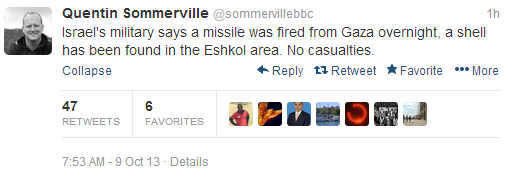1) At the INSS Orna Mizrahi and Yoram Schweitzer analyse “Hezbollah’s Restrained Aggression”.
“The clash on the Israel-Lebanon border on August 4-6, 2021 included unusual activity on both sides – the first Israeli air attack in Lebanon since 2013, following rocket fire against Israel, and 19 rockets fired at northern Israel by Hezbollah in response, in order to deter Israel from deviating from the balance of mutual deterrence. In effect, this clash was another link in a recent chain of hostilities between Israel and the “axis of resistance,” led by Iran. This careful and measured aggression by Hezbollah was influenced by both the difficult situation in disintegrating Lebanon, including the growing criticism of Hezbollah, and by considerations concerning its commitment to the “axis,” especially to Iranian interests.”
2) The FDD’s Tony Badran looks at the situation ahead of the renewal of UNIFIL’s mandate in southern Lebanon.
“Each year, as part of the ritual of renewing UNIFIL’s mandate, Hezbollah puts out barely veiled threats, mainly targeting France and other European countries that contribute troops to UNIFIL, warning against any attempt to alter the status quo. Last month, through its usual channels in the Lebanese press, Hezbollah once again leveled its customary threats. The warning referred to, among other things, UNIFIL’s attempt to enhance its surveillance capabilities through the installation of advanced cameras at locations near the Blue Line.”
3) Alan Baker discusses the Durban IV Review Conference at the JCPA.
“On September 22, 2021, pursuant to UN General Assembly resolution 237/75 dated December 31, 2020, the United Nations intends to convene a one-day meeting, at the level of heads of state and government, to mark the 20th anniversary of the notorious 2001 Durban Declaration.
In light of the incredible damage that the original 2001 Durban documentation has wrought to the State of Israel, the Jewish People, the UN itself, and the international struggle against racism, the terminology used in this resolution appears to be particularly ironic and cynical inasmuch as it attempts to rewrite history by deliberately concealing the reprehensible outcome of the 2001 conference.”
4) At the INSS Raz Zimmt analyses the proposed new Iranian government.
“The proposed government of incoming Iranian President Ebrahim Raisi reflects a significant change in the political balance of power in the executive branch, and heralds a return to hardline control over all branches of government. The government’s composition indicates Raisi’s intention of taking a tougher line than the previous government in both internal affairs and foreign policy, although overall strategy in Iran is in the hands of Supreme Leader Ali Khamenei. While like previous administrations Raisi’s proposed government comprises mainly technocrats with extensive academic education, all of the designated ministers are identified with the conservative camp, and at least some of them adhere to radical and anti-Western ideology. The government’s hardline make-up, the President’s loyalty to the Supreme Leader, and his good relations with the Revolutionary Guards are likely to prove useful in winning more support and cooperation from the other political power centers. It is doubtful, however, whether this will be enough to achieve progress in solving Iran’s fundamental problems.”






Iran’s repeated threat to annihilate Israel is the ultimate declaration of war. As a result, Israel has the right to do anything and everything in its power to avert such an outcome.